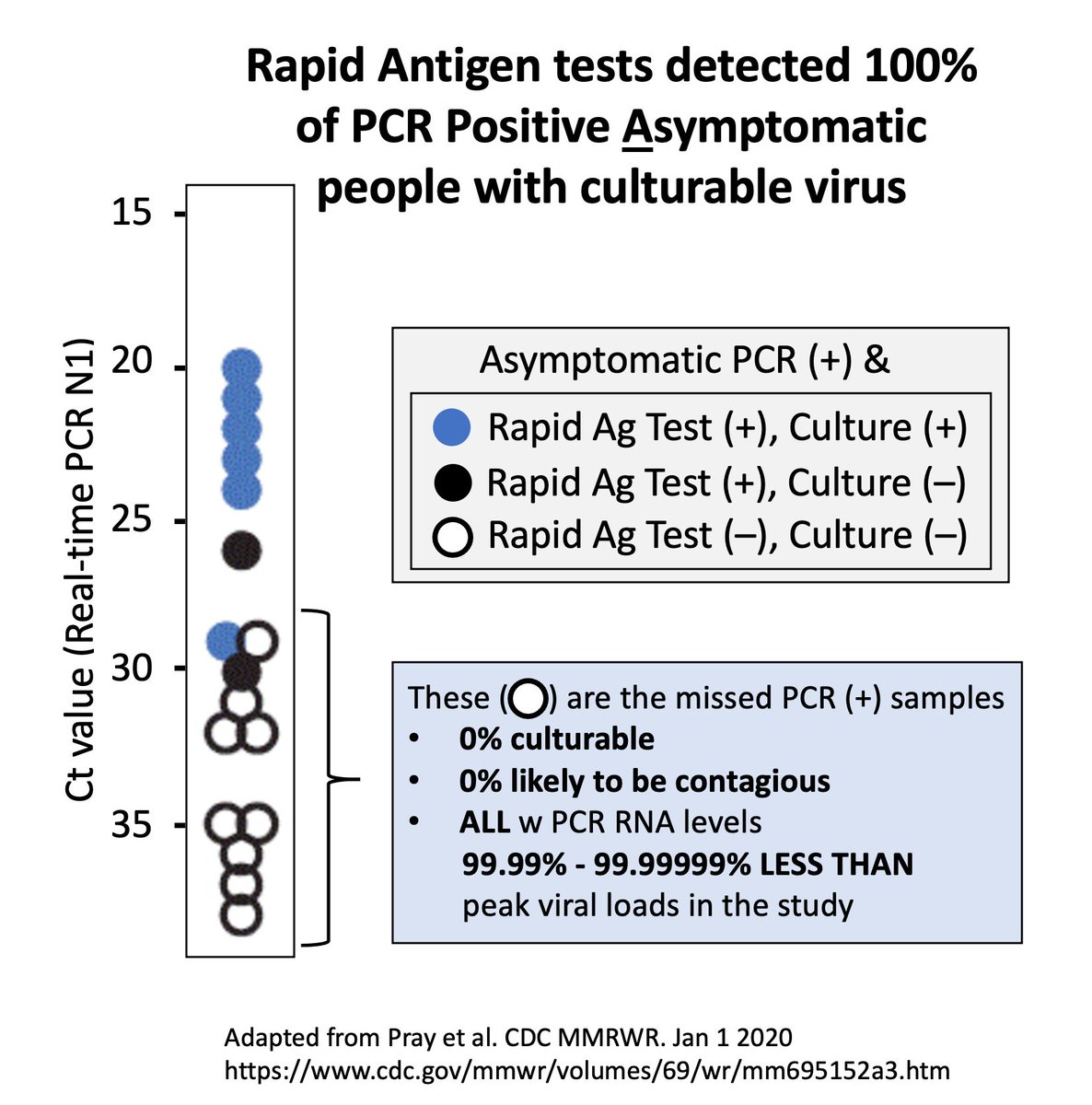
Dear @CDCgov - Why can't you learn?
The paper concludes rapid Antigen tests had only 40% sensitivity in Asymptomatics
But failed to state they had 100% SENSITIVITY for what matters - culture +ve viable virus in Asymptomatics
PCR, not Ag, is wrong tool for Asymptomatic screens
The paper concludes rapid Antigen tests had only 40% sensitivity in Asymptomatics
But failed to state they had 100% SENSITIVITY for what matters - culture +ve viable virus in Asymptomatics
PCR, not Ag, is wrong tool for Asymptomatic screens
https://twitter.com/CDCgov/status/1344708066663690242
The problem is simple
PCR remains +ve for long time after infectious
Meanwhile Ag tests are +ve only when infectious
If testing Asymptomatics randomly (vs. repeatedly) - they are MOST likely to be found post-infectious -> EXPECT Ag to be -ve MOST of time someone is PCR +ve
PCR remains +ve for long time after infectious
Meanwhile Ag tests are +ve only when infectious
If testing Asymptomatics randomly (vs. repeatedly) - they are MOST likely to be found post-infectious -> EXPECT Ag to be -ve MOST of time someone is PCR +ve
The very paper @CDCgov links to that concludes rapid Ag tests do not perform well in Asymptomatics literally shows 100% sensitivity for culture +ve samples in Asymptomatics
Massive failure to not emphasize this for asymptomatic screening.
cdc.gov/mmwr/volumes/6…
Massive failure to not emphasize this for asymptomatic screening.
cdc.gov/mmwr/volumes/6…

In these studies we MUST DEFINE WHY WE ARE TESTING.
This is common sense.
If the authors had defined the goal of their testing - they would have recognized the rapid Ag test performed very well - actually 100% in their study.
Instead, they got lost and concluded it failed.
This is common sense.
If the authors had defined the goal of their testing - they would have recognized the rapid Ag test performed very well - actually 100% in their study.
Instead, they got lost and concluded it failed.
NOTE: This is from 2021! Not 2020. Sorry about any confusion it might cause.
A number of people asked for a ‘translation’ of this thread:
The Rapid tests did a very good job at detecting infected people who were likely to still be contagious. The rapid antigen tests do not and are not meant to detect ppl who are No longer contagious. But PCR does.
The Rapid tests did a very good job at detecting infected people who were likely to still be contagious. The rapid antigen tests do not and are not meant to detect ppl who are No longer contagious. But PCR does.
• • •
Missing some Tweet in this thread? You can try to
force a refresh


